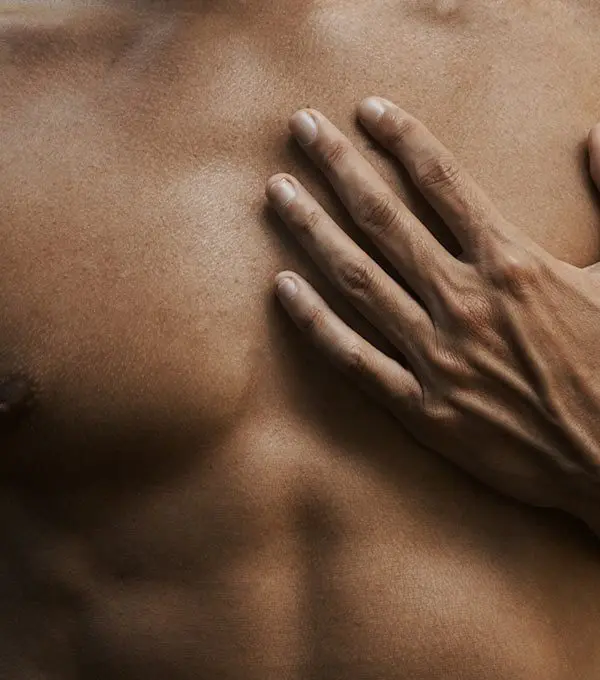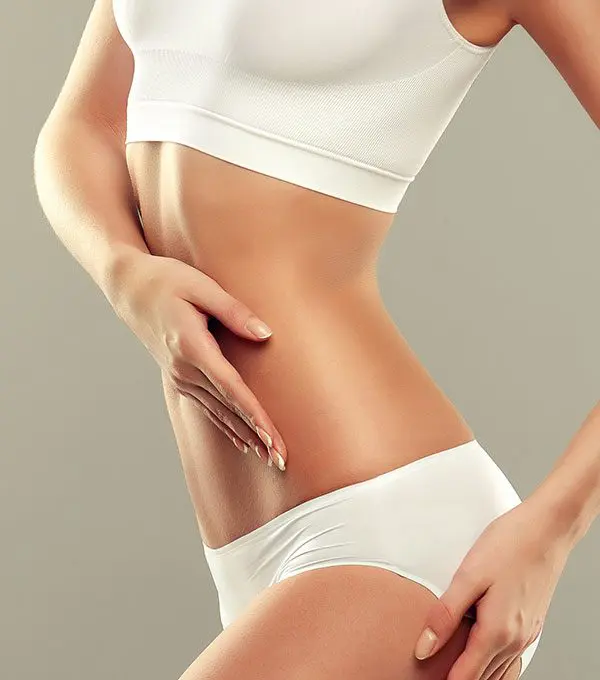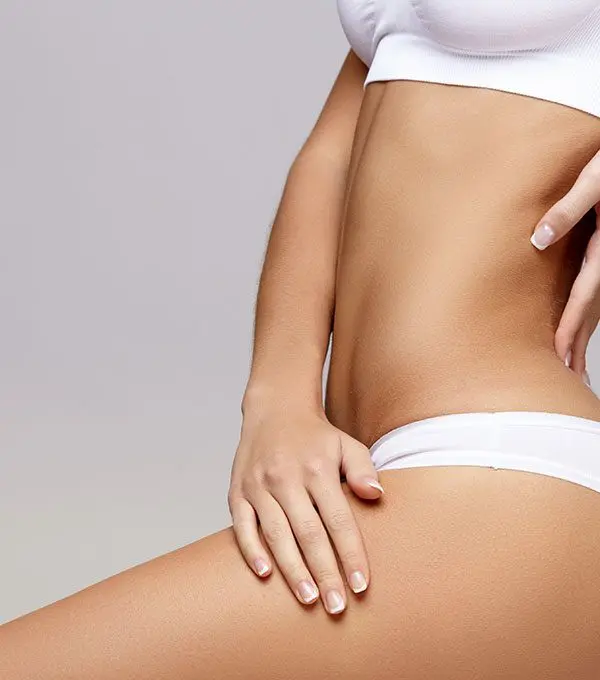Acne Treatments
What Is Roaccutane (Isotretinoin): A Complete Guide
Roaccutane (Isotretinoin), also known as Accutane, is an effective treatment often given by dermatologists for severe acne that refuses to respond to other treatments. Roaccutane lessens acne by treating the underlying circuit of factors such as high oil excretion and inflammation. It is one of the most effective solutions, but you should also know about its side effects, treatment and who is suitable for this medicine before considering taking it.
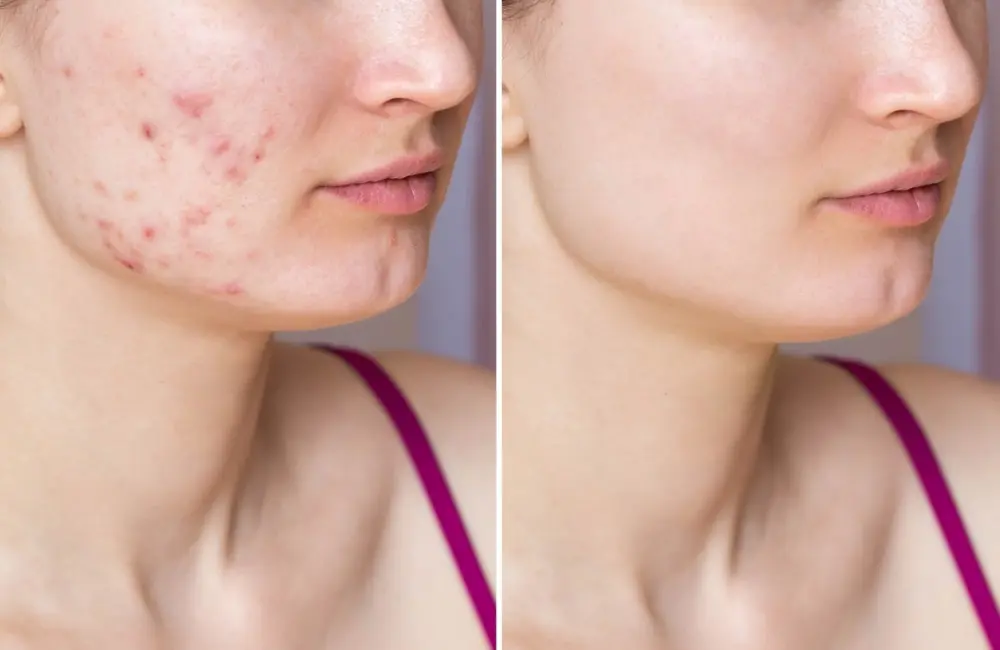
This guide will provide you with essential information about Roaccutane for acne, from how it works to its benefits, risks, and what to expect before and during treatment for acne.
Understanding Roaccutane (Isotretonin)
Roaccutane (isotretinoin) is a powerful oral drug used to treat severe acne, especially cystic or nodular acne, that has not responded to other treatments. It is a man-made version of vitamin A and helps with multiple issues that lead to acne formation.
By decreasing the amount of sebum (oil) the skin makes, Roaccutane prevents clogged pores — one of the leading contributors to acne. It also has anti-inflammatory effects and reduces the size of sebaceous glands, which decreases oil production even further. It prevents the proliferation of bacteria linked to acne formation and encourages skin cell turnover, which brightens acne-prone skin.
Because of its potency, Roaccutane is generally only used in the most difficult cases of acne with associated scarring or psychological problems. It works so well that careful screening and monitoring by health care providers is necessary because with high effectiveness also comes the risk of side effects.
How does Roaccutane work for acne?
Roaccutane is a drug that directly addresses the root causes of acne using four main mechanisms. It does this by drastically decreasing the amount of sebum (the oily fluid secreted by sebaceous glands in the skin) production, which is its main mechanism of acne treatment.
Too much oil can clog pores and create ideal conditions for the development of acne-causing sebum. Roaccutane works by decreasing oil production and treating one of the key causes of acne formation – excess sebum.
Roaccutane lowers oil production, but it also has really strong anti-inflammatory properties. During this process, the immune system often responds to the bacteria and sebum that are trapped in pores, which results in inflammation of acne lesions. In turn, it reduces this inflammation and helps to reduce the redness, swelling, and discomfort from severe acne.
It also regulates the skin cell turnover process. It helps kill off dead skin cells faster, preventing the build-up that clogs pores. It minimises the development of comedones (clogged pores) and allows for the renewal of skin.
Last but not least is the indirect antibacterial effect of Roaccutane. It does not directly eliminate bacteria; however, it creates a less favourable environment for Propionibacterium acnes—the acne-causing bacteria—by cutting down on oil and enhancing skin cell turnover. This action, in turn, makes Roaccutane ideally suited to the treatment of severe acne.
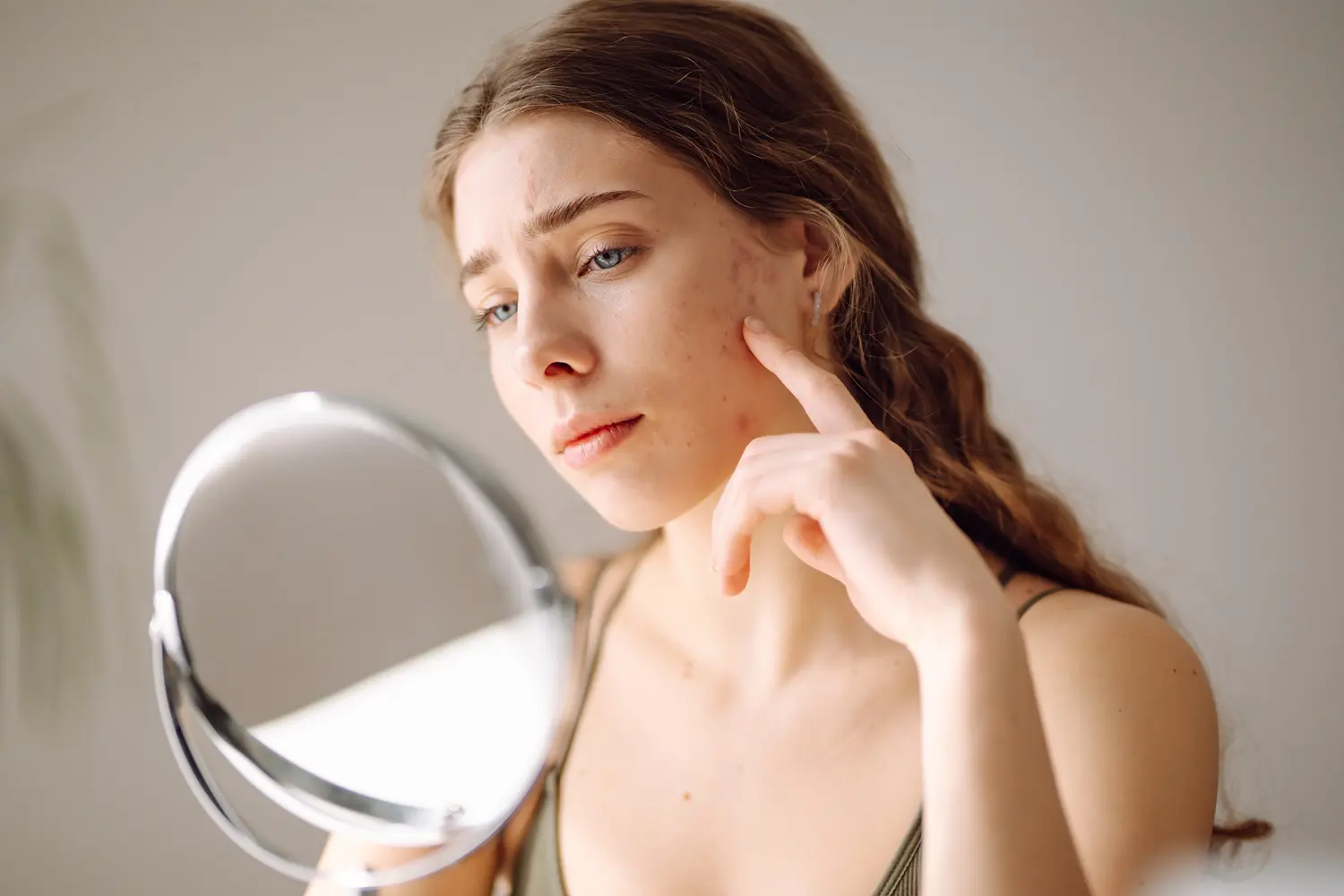
How does Roaccutane treatment work?
Depending on the severity of acne and response to treatment, courses typically span 4-6 months. To reduce the occurrence of side effects, treatment is usually initiated in low doses and gradually increased to the target dose. Initial doses typically range between 0.5mg/kg/day, with the dose titrated according to clinical response and tolerance. The effective long-term cumulative dose is 120-150 mg/kg over the course of therapy.
Patients receiving treatment must be observed for side effects, and they will require regular blood tests to monitor liver function, as well as lipid levels. The majority of patients will see a sizable improvement within 2-3 months and attain complete or near-total clearance of their acne by the end of their treatment course.
Many people will find that, having finished a course of Roaccutane, the effects are essentially permanent; however some will need to go through a second course before achieving full remission. Roaccutane can be extremely effective, but it is not a permanent fix, and you might get the odd breakout from time to time — which is to be expected.
How long will a course of Roaccutane be?
The treatment is for 4 to 6 months and depends on the severity of the acne and your body’s response. The length is based on the overall amount necessary in order to maintain lasting control, which will be roughly 120-150 mg/kg.
We asked William Green, founder and managing director of Botonics Plastic Surgery, and expert in cosmetic dermatology, for his insight on the procedure:
“At Botonics, we follow an evidence-based approach to isotretinoin therapy, ensuring each patient’s treatment is tailored to their individual needs. The ideal cumulative dose typically ranges between 120 mg/kg and 150 mg/kg of body weight, depending on the severity of the acne and the patient’s response to treatment. For most patients, we aim for a primary course of 120 mg/kg, which is effective in achieving clear skin for the majority. However, if the desired outcome has not been achieved by the end of this primary course, we have the flexibility to extend the treatment to a higher cumulative dose within the recommended range, ensuring optimal and lasting results.”
While some individuals who are less severely affected may essentially see results on a more short-term basis, other people who are severely impacted may have to be in treatment for longer periods of time. Most patients also see a dramatic improvement or clearance of acne after one course, yet intermittent courses are sometimes needed for lifelong results.
How effective is Roaccutane for acne?
Again, we asked William Green for his opinion, this time on how effective he believes Roaccutane to be from his experience:
“We frequently prescribe oral isotretinoin because it remains the gold standard for treating acne, offering not just temporary control but the potential to completely stop acne at its source. At Botonics, we’ve witnessed countless transformations—both in the clarity of our patients’ skin and in their confidence. Many of our patients, after years of battling persistent breakouts, express profound gratitude for finally experiencing clear, healthy skin and a renewed sense of self-esteem.”
Roaccutane is very efficient when it comes to treating severe, chronic acne — specifically some types of acne that won’t respond to any other medication. One treatment course results in significant improvement, if not full clearance, of acne for about 80% of patients. Results are permanent for most people and have minimal relapses compared to other treatments.
The effectiveness of Roaccutane depends on individual factors like the severity of acne and the body’s response to the medication. However, this is not always a permanent solution. Still, it does provide one of the most effective treatments for severe acne and decreases the frequency and severity of breakouts in most patients.
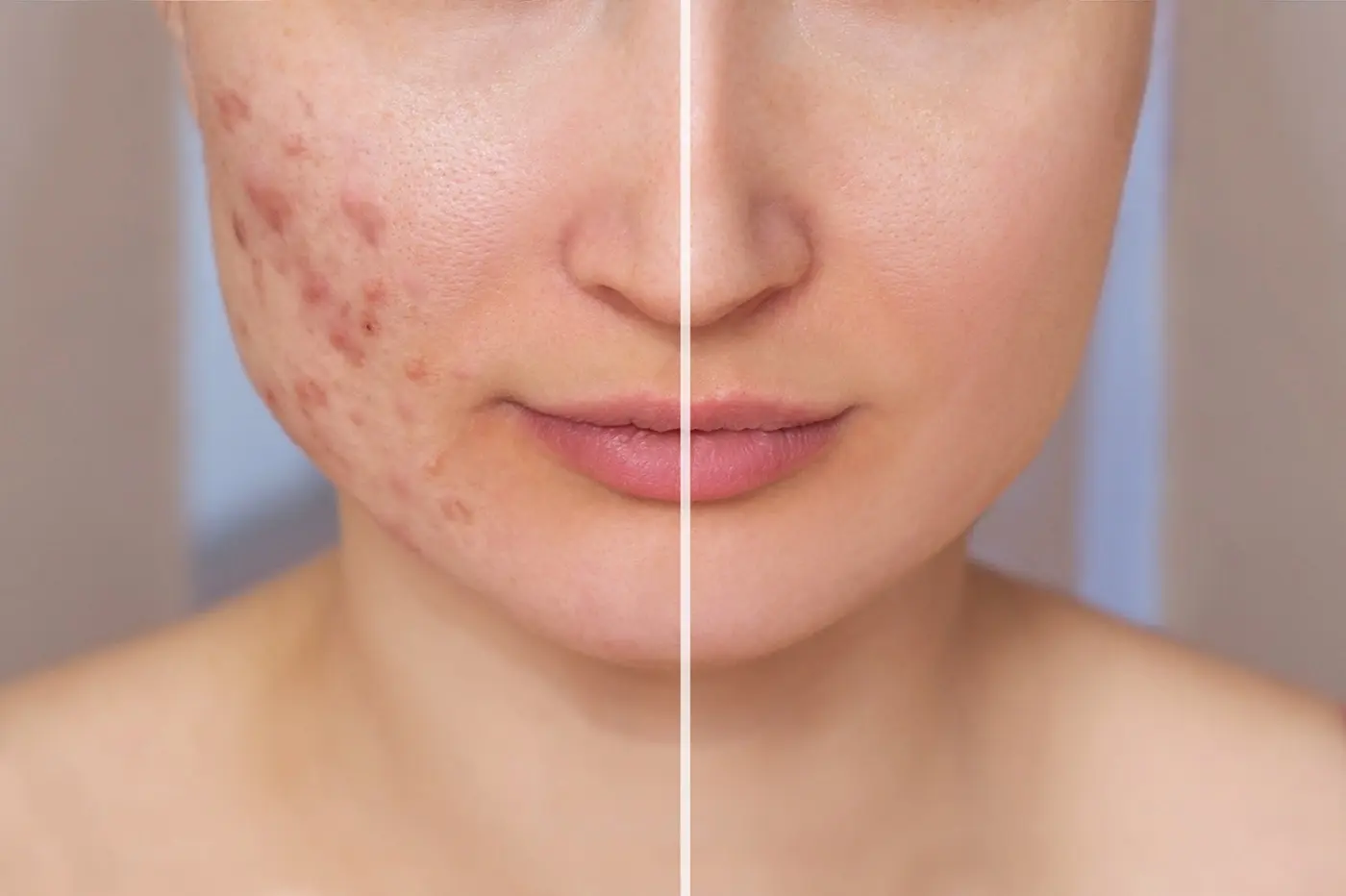
Does Roaccutane cure acne for good?
For a good number of patients, Roaccutane offers a cure for acne that lasts their whole lifetime, but not in all cases. More than 70–80 per cent of patients have excellent or complete clearance after the treatment course, with many going on to enjoy years of clear skin. However, other people will notice a return of the acne months or even years later.
In such cases, a second course of treatment with Roaccutane or alternative treatments may be required. Although it is among the most powerful acne treatments, no two cases of acne are alike, and so the imperfections of human skin may still persist in less-than-perfect results and sporadic bouts of pimples.
Who should consider Roaccutane?
Roaccutane is commonly suggested for patients with extreme or treatment-resistant acne. It is best suited for types of acne, including cystic, nodular, and any other type with large painful pimples deep below the surface. It is a treatment option for patients whose acne does not respond to over-the-counter solutions and antibiotics. Roaccutane not only treats scars caused by acne but also reduces inflammation and further damage to the skin.
The typical Roaccutane patient tends to be someone with noticeable acne on their face, back or chest that falls into either moderate or severe categories. Even those who’ve faced persistent acne for many years and felt frustrated by topical treatments or oral antibiotics may be good candidates.
That being said, not everybody can take Roaccutane. It comes with the risk of causing birth defects, so pregnant women should avoid this treatment, and individuals who have previously suffered due to liver problems or high cholesterol must be cautious around it as well.
Also, those with a history of depression, anxiety and other mental conditions should talk to a professional before taking Roaccutane. A full assessment by a medical professional is required to determine if it is the appropriate course of treatment based on how severe the acne is and the health of the patient overall.
Before starting Roaccutane: What to expect
All patients should be extensively evaluated medically prior to the initial course of Roaccutane for proper patient selection. These usually involve a physical examination, medical history evaluation, and regular blood tests to assess liver function as well as cholesterol and triglyceride levels. As Roaccutane can cause psychological side effects, they will also screen for conditions like depression or a history of mental health problems. Because it can damage unborn babies, women of childbearing age need a pregnancy test before commencing treatment.
Patients will also need to make some changes in their lifestyles. Roaccutane dries the skin and makes it sensitive, so regular moisturising is absolutely essential. With increased sensitivity to the sun, sunscreen usage becomes even more important. In some cases, patients may need to avoid waxing or using strong exfoliating products, as Roaccutane can make the skin more fragile and prone to irritation.
Moreover, since Roaccutane can have serious side effects, particularly affecting the liver and lipids in general, any patient should be followed up regularly whilst on it. Women also have to take two types of contraception while they are being treated and for a month afterwards in order to avoid pregnancy.
Lastly, the side effects (dry skin, chapped lips, joint pain, and, in rare cases, mood changes) need to be addressed with the patients. By understanding this, you can help make the whole journey much safer and more effective.
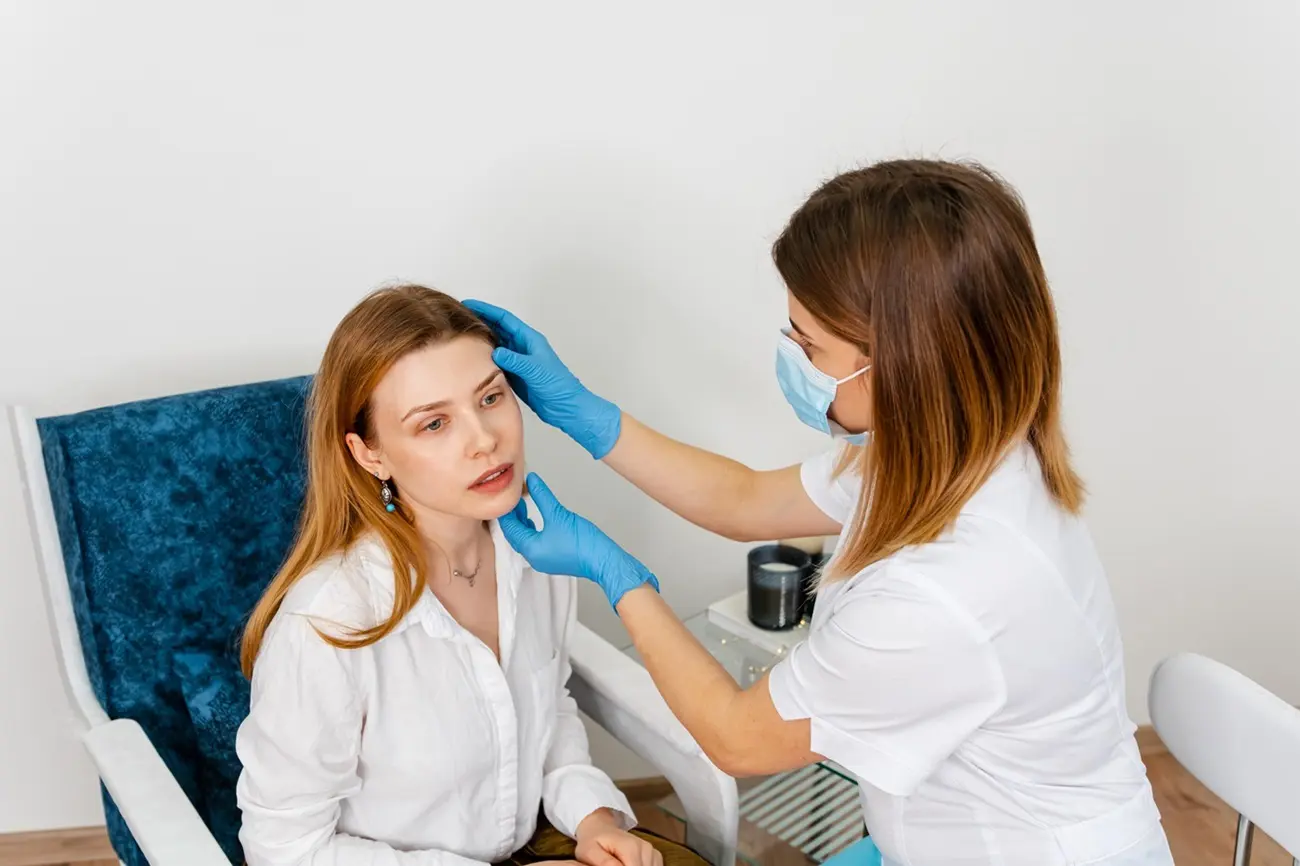
The potential side effects and risks of Roaccutane
Roaccutane is a miracle for cystic acne, but not without side effects and risks. Awareness of these side effects allows the patients to make better decisions before and during the treatment.
Common side effects
- Dry skin: Roaccutane reduces sebum secretion, which can cause dryness and scaling of flakes, mostly seen on the face, lips, and hands.
- Dry, chapped lips: The dryness of the lips is among the most common side effects. Lip balms are recommended for patients to apply during the day.
- Dry eyes: Decreased oil production can also cause dry and irritated eyes or blurred vision, especially when using contact lenses.
- Frequent nosebleeds: Dryness in the nasal passages may lead to nosebleeds.
- Joint and muscle pain: Soreness or pain in the muscles and/or joints occurs when collagen is impacted as well as skin elasticity by taking the medication.
- Sun sensitivity: Makes the skin more sensitive to sunlight and may increase the likelihood of getting sunburned.
Uncommon side effects
- Mood shifts: Others may have mood swings and feel nervous or depressed. Although these psychological effects are rare, they need to be monitored.
- Liver function changes: Affects the liver, causing increased liver enzymes and therefore regular blood tests are needed.
- High cholesterol and triglycerides: This medicine may increase your cholesterol and triglyceride levels, so you need to check periodically.
- Hair thinning: Patients may experience some mild hair thinning, though this typically resolves after treatment
- Gastrointestinal distress: Some people have reported stomach pain, nausea and diarrhoea.
- Birth defects: It’s highly teratogenic, so strict pregnancy prevention protocols with two forms of birth control are a pillar of treatment in women of childbearing age.
The process of getting Roaccutane
- The first step to obtain Roaccutane is an in-depth consultation with an experienced dermatologist or healthcare professional. In this consultation, your doctor will estimate how serious your acne is, go over your medical history and what treatments you have already tried. You have to go over this first as it is paramount in deciding if it is right for you.
- When Roaccutane is deemed suitable, patients must undertake a number of tests. This usually involves blood tests to monitor liver health, cholesterol and triglyceride levels, and a pregnancy test in women of childbearing age. During these examinations, if there is a health issue to be cautious about, the doctor can modify the treatment properly or choose an alternative one.
- If you are a good candidate, the doctor will give you a prescription for Roaccutane, but start it at a lower dose to reduce possible side effects. Follow-up appointments are held regularly during this process to assess progress and look out for any negative side effects. These appointments may also involve further blood tests to monitor liver function and keep lipid levels under control.
- The patients are counselled about lifestyle changes, such as using moisturisers and sunscreen and avoiding waxing and aggressive skin care products. Women are also required to adhere to stringent birth control precautions to avoid pregnancy during and for some time after treatment.
Contact Botonics for more information on Roaccutane treatment options
If you would like more information on Roaccutane, such as how exactly this powerful drug can help alleviate your skin troubles, contact Botonics about the potential of this potent and effective medication for your flaw-free skin!
Our group of experts can walk you through every one of the steps, from assessments and evaluations to side effect management all the way down to an effective treatment protocol. We believe everybody is unique and therefore provide personalised care to ensure you only take Roaccutane so it will be effective for your particular type of acne.
Contact us today to book a consultation and start your journey towards clear, healthy skin. Get started with Botonics to get rid of acne once and for all.
Verdict: Is Roaccutane worth it?
If you have tried other acne treatments that have not worked, then Roaccutane is worth it. It is the most effective acne medication available with a large success rate. In fact, around 50% of people who complete one course of treatment will never need to use acne medication again in the future.
Here’s the verdict that William Green gave on Roaccutane:
“For those who have struggled with acne resistant to other treatments, isotretinoin can be truly life-changing. While no medication is without its risks, the benefits often far outweigh the drawbacks. Many of our patients find that after completing a single course, their skin is permanently transformed, giving them freedom from acne and a renewed sense of confidence that lasts a lifetime.”
Frequently Asked Questions (FAQs)
When should I take Roaccutane?
Roaccutane is typically taken once or twice a day with food to enhance absorption and minimise stomach irritation. The course lasts for 4 to 6 months, depending on your acne severity and the dose is usually determined by your weight. Consistency is essential for the best results, so take Roaccutane at the same time every day.
It is also recommended that doses be kept up to date. If you forget a dose, take it as soon as you can, but never double the next one. During treatment, keep up with regular follow-up appointments with your dermatologist to track progress and adjust dosage when needed.
I am not experiencing any side effects, is this normal?
It is not uncommon for Roaccutane to not give you side effects. However, a lot of patients do not develop significant negative effects from the medicine. But even if you are not feeling side effects, continue getting check-ups and blood tests as previously scheduled by your doctor. Side effects of Roaccutane can be less visible, such as altered liver function or elevated cholesterol, both monitored via blood tests. Stay in touch with your healthcare provider to know if the medicine is working properly.
Can I drink alcohol with Roaccutane?
As a general rule — steer clear of or reduce alcohol consumption when using Roaccutane. Because both Roaccutane and alcohol are processed by the liver, consuming alcohol may raise the risk of liver damage and cause other side effects, including fatigue, dizziness or gastrointestinal discomfort. It can also alter how smoothly the body absorbs the medicine, so it may have a weaker effect.
Before doing anything, it is best to talk to your healthcare provider about alcohol use for safety. You probably should not drink while on the treatment course anyway and for at least a month afterwards.
Can I take Roaccutane if I have depression?
People with a history of depression can take Roaccutane, but it is best done after careful consideration and, at times, close monitoring. Although it is one of the most effective treatments available for acne, there are some safety issues, and Roaccutane has been linked to developing or worsening mental health conditions, including depression or mood changes.
It is critical to tell your doctor before going on Roaccutane if you have a history of depression or other mental health issues. Your healthcare provider may evaluate your mental health, refer you to additional support or change your treatment plan.
I would like treatment for acne scarring – how long should I wait?
If you have just finished a course of Roaccutane for active acne, it is recommended to wait 6 months before treating acne scarring. By drastically reducing both oil production and inflammation, Roaccutane clears active acne on the skin.
The medication can make the skin more reactive and irritated, though, so it’s best to wait a minimum of 6 months after finishing treatment before undertaking any scar treatments such as lasers or chemical peels. This gives your skin time to recover and regain its characteristic appearance.
I am noticing more facial redness while I am on Roaccutane. Is this normal?
Yes, redness is a very common adverse effect of Roaccutane. This medication reduces oil production from the skin, but on the other hand, it can dry out more and make your skin sensitive and easily irritated. It may cause transient erythema (redness) or flushing, especially in the nasolabial area (folds going from the nose to the chin), cheeks and foreheads.
If the redness is severe or not going away, contact your dermatologist. You should use a gentle moisturiser, avoid some skincare products, and wear sunscreen regularly. Generally, the redness will gradually improve as your skin gets used to the medication.
Can I go in the sun when taking Roaccutane?
Roaccutane gives a very high sensitivity to the sun, which means that you can burn with a few minutes of sunshine. Consequently, it is advised to limit exposure to the sun and use sunscreen with a high SPF (30 or above) as a protective measure against your skin. When outside, it’s best to wear protective clothing such as hats and long sleeves.
Using a tanning bed is dangerous and should be avoided during Roaccutane treatment. If you must be in the sun, avoid prolonged exposure, take regular breaks, and reapply that sunscreen often.
How should I remove make-up when I am taking Isotretinoin?
During treatment with Roaccutane, your skin is more sensitive and tends to get very dry, so remember to treat it gently. Use a gentle and alcohol-free cleanser or micellar water for makeup removal to prevent irritation. Do not scrub or rub the skin and cause more dryness or irritation.
Gently wipe away the makeup with a cotton pad or your fingers. Apply a hydrating moisturiser after cleansing to restore moisture and prevent dryness. Another tip is to opt for non-comedogenic makeup products to avoid blocking your pores.



